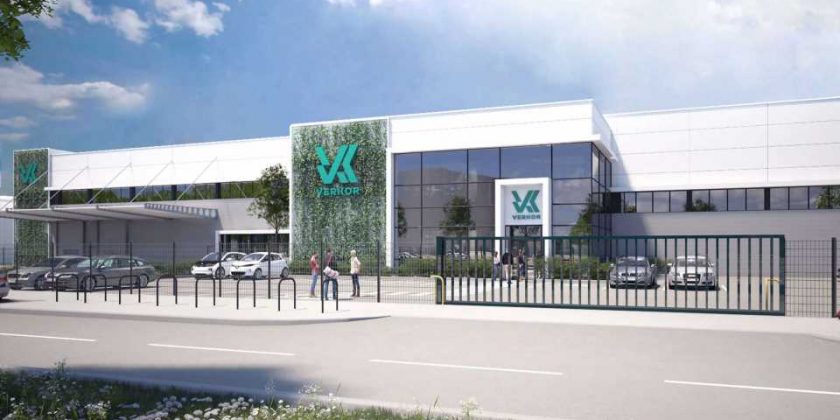The project accelerated after a partnership agreement with Renault Group.
Verkor (a French battery startup) announced this month that new and existing investors contributed to the new €100 million ($118 million) financing round, which is a major milestone to develop high-performance battery cells in France.
The company would like to first build the Verkor Innovation Centre (VIC) in Grenoble. It should be operational in 2022 and accommodate: “a pilot line for battery cell manufacturing, a R&D centre, testing facilities, module prototyping, and provide training for a new generation of engineers and technicians.”
Then the company will build a battery gigafactory with a target of 16 GWh annually in 2024 and “50+” GWh by 2030. That’s quite ambitious considering that Verkor was launched just a year ago.
Partnership with Renault, support from the government
The company recently has entered into a partnership with Renault Group, which intends to buy high-performance batteries for the C and higher segments of the Renault range, as well as for the Alpine models. Renault Group also invested in Verkor and will be co-developing the batteries.
Another important partner for Verkor is the French government (which also participated in the round).
“Co-led by EQT Ventures and Renault Group, with participation from the French Government and Auvergne-Rhône-Alpes Region, the funding will support the company’s expansion, and trigger the construction of the Verkor Innovation Centre (VIC) where the advanced battery cells and modules will be designed to support Europe’s net-zero goals. Also participating in the round were EIT InnoEnergy, Groupe IDEC, Schneider Electric, Capgemini, Arkema, Tokai COBEX and the Fund for Ecologic Modernisation of Transport (FMET) managed by Demeter.”
“Verkor will now benefit from the industrial expertise of new shareholders Arkema, a leader in high-performance specialty materials, and Tokai COBEX, a speciality manufacturer of low-carbon, ultra-efficient battery anode materials. Demeter, a major energy transition private equity fund also steps in with its Fund for Ecological Modernisation of transport (FMET), while the French Government, Auvergne-Rhône-Alpes Region and Bpifrance will provide financial support for the R&D programme.”
As we can see, there is a major customer and initial capital for the project, but having just a few years to develop a competitive battery cell is not an easy task.
This is why Verkor’s volume will be just a small part of Renault’s overall battery purchase in the foreseeable future.
Source: Read Full Article
